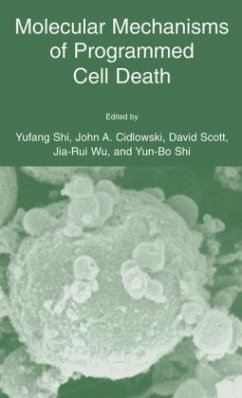
Mechanisms and Consequences of Proton Transport
Versandkostenfrei!
Versandfertig in 1-2 Wochen
115,99 €
inkl. MwSt.

PAYBACK Punkte
58 °P sammeln!
"The principal focus of Mechanisms and Consequences of Proton Transport is on the gastric parietal cell and the acid secretory apparatus: how it operates and the consequences of malfunction. Key topics include: - the fundamental structure and molecular operation of the gastric H+/K+ exchange pump; - gene targeting studies directed at functional changes in the gastric epithelium and its ability to deal with the pathological consequences of acid and Helicobacter pylori infection; and - regulation of parietal cell activation by protein kinases and ion transport pathways; the parietal cell as a mo...
"The principal focus of Mechanisms and Consequences of Proton Transport is on the gastric parietal cell and the acid secretory apparatus: how it operates and the consequences of malfunction.
Key topics include: - the fundamental structure and molecular operation of the gastric H+/K+ exchange pump;
- gene targeting studies directed at functional changes in the gastric epithelium and its ability to deal with the pathological consequences of acid and Helicobacter pylori infection; and
- regulation of parietal cell activation by protein kinases and ion transport pathways; the parietal cell as a model to study mechanisms for the translocation, docking, and fusion of membranes associated with regulated recruitment and recycling of transport proteins.This book provides cutting edge research for physiologists, cell biologists, and gastroenterologists who wish to understand the mechanisms of the gastric proton pump and the consequences of malfunction and pathology. "
Key topics include: - the fundamental structure and molecular operation of the gastric H+/K+ exchange pump;
- gene targeting studies directed at functional changes in the gastric epithelium and its ability to deal with the pathological consequences of acid and Helicobacter pylori infection; and
- regulation of parietal cell activation by protein kinases and ion transport pathways; the parietal cell as a model to study mechanisms for the translocation, docking, and fusion of membranes associated with regulated recruitment and recycling of transport proteins.This book provides cutting edge research for physiologists, cell biologists, and gastroenterologists who wish to understand the mechanisms of the gastric proton pump and the consequences of malfunction and pathology. "














